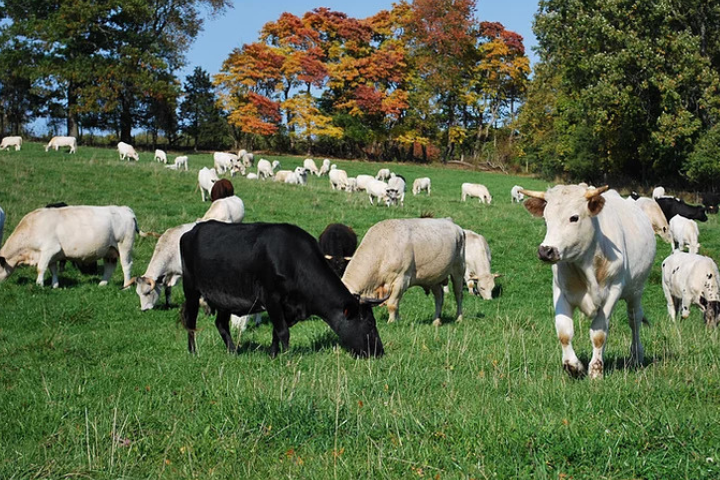Southeast Michigan Sustainable Livestock Working Group to Increase Supply-Chain Capacity
Southeast Michigan Sustainable Livestock Working Group to Increase Supply-Chain Capacity
Southeast Michigan Sustainable Livestock Working Group to Increase Supply-Chain Capacity
Program: Catalyst Grants
Program details » | All Catalyst Grants projects »

Project Team
- Jennifer Blesh — U-M School for Environment and Sustainability (SEAS) (PI)
- Joseph Trumpey —U-M Penny W. Stamps School of Art & Design and SEAS
- Shannon Brines —SEAS
- Alex Bryan, Michigan Dining
Project Summary
There is an imbalance in the Southeastern Michigan supply chain involving sustainably and humanely raised animal products. First, the supply chain lacks a shared understanding—from producers to end consumers—of what sustainably and humanely raised animal products are and the spectrum on which they can range in terms of environmental, economic, and social impacts. Second, demand from institutional purchasers and other wholesale buyers like restaurants and stores far outstrips supply. There are many questions surrounding why these gaps exist, yet, there is no lasting group in our region working on these issues.
To fill that gap, the overarching goal of this project was to establish such a working group for the livestock supply chain for the greater Washtenaw County region, including some of Southeastern Michigan. To do this, the team:
(1) engaged diverse supply chain stakeholders—farmers, governmental and nonprofit organizations working in the food system and land preservation, other academic institutions, and procurement, distribution, and retail entities—and discussed, in a summit and series of meetings, how best to establish a lasting working group, and who should be represented on the working group; and
(2) launched the working group with a structure and a process for continued efforts.
This effort aimed to establish authentic relationships with a local network of diverse stakeholders interested in sustainable livestock production. Ultimately, these partnerships will be able to advance research on the sustainability of all components of this supply chain, spanning procurement, agroecosystems, life cycle analysis, public health impacts, climate impacts, and beyond. More concretely, a key goal is to increase the capacity of sustainable livestock production in the region over the next 5-10 years, so that institutions like the University of Michigan can procure a significant portion of their grass-fed beef, for example, from a network of local farmers.
This project received a $10,000 Catalyst Grant in 2019.